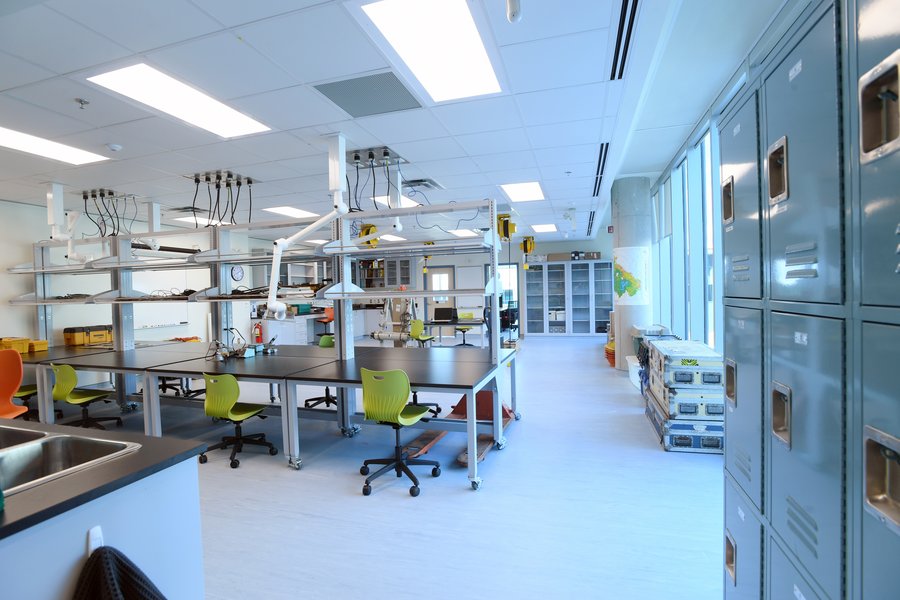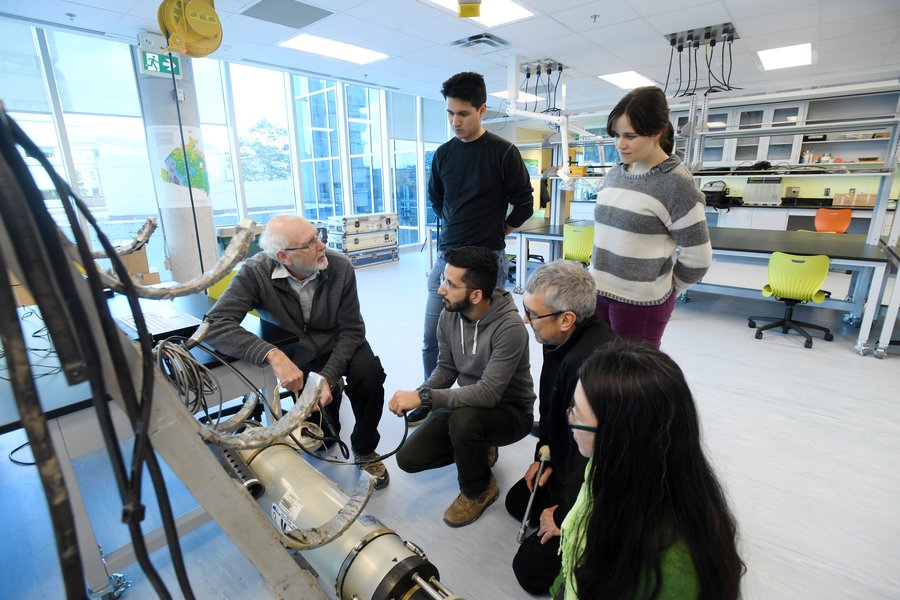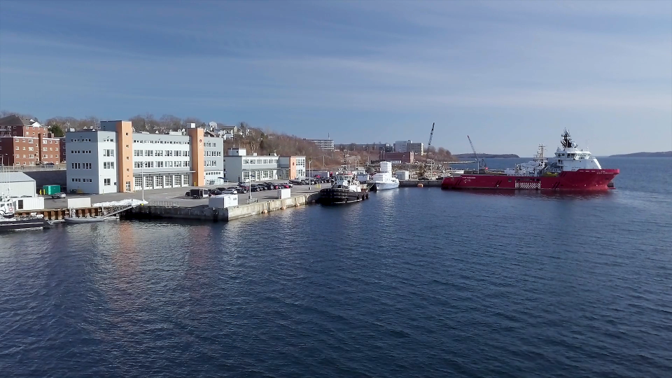Facilities
NFSI Laboratory
The NFSI is based in a 1475 sq ft laboratory space in the Steele Ocean Sciences Building at Dalhousie University, consisting of a 1210 sq ft Instrumentation Lab and two Data Analysis rooms. Our location in the SOSB provides an innovative research laboratory setting adjacent to the Ocean Frontier Institute and other high-caliber ocean research groups, promoting research collaborations and synergies, and thereby enhancing the global ocean research programs at Dalhousie.
The lab includes workspace for assembly, testing, and repair of the OBS instruments. It also houses high-end computing resources for storage and retrieval of seismic data, and data preprocessing and analysis. The OBS are stored offsite in dry storage containers when they are not deployed on the seafloor. Offices inside the lab provide space for facility staff to analyze collected seismic data, plan future projects and surveys, and coordinate facility operations. The lab is linked via Dalhousie’s local network to a secure server in the Killam Library, where all seismic data is stored post-acquisition, and from where these data are provided to internal and external facility users as needed.
Located in a major university setting, the NFSI lab also has the opportunity to teach students about all aspects of ocean-based seismic data, from details of the instruments themselves, to survey planning and data pre-processing and analysis, thus cultivating the next generation of experts in the field.

The NFSI lab space on the Steele Ocean Sciences Building 4th floor. View of the Instrumentation Lab with the doors to the two Data Analysis rooms at the far back.

Dr. Keith Louden describing the now decomissioned Dal-GSC short-period OBS to members of the DIG (Dalhousie Imaging Group).
Computing Resources
The NFSI lab also serves as a location for development of seismic data analysis software, data preprocessing for field corrections and conversion to standard data formats, and storage and distribution of data and results. For this purpose, the lab is equipped with 4 high-end workstations for data upload and post-acquisition preprocessing of the field OBS data.
All collected seismic data and metadata is stored on-site at Dalhousie and maintained by facility staff. These data are accessible from the NFSI server directly through our data access form or externally through IRIS. All data analysis results produced by the NFSI are also stored on the NFSI server, and available through this website and/or technical publications, as appropriate. All software packages developed and maintained by the NFSI are freely accessible to the public. To learn about and/or download any of our data or software packages, please click the appropriate button below.
OBS Storage
When the OBS are not deployed on the seafloor, they are housed in dry storage containers located at the COVE facility in Dartmouth, NS. COVE is a hub for Atlantic Canada's ocean technology sector, combining industry and academic groups, with direct wharf access in the Halifax harbour.

The COVE facility in Dartmouth, NS (photo courtesy of COVE).
Mobilization Area
The NFSI also occupies space on the first floor of the Life Sciences Centre at Dalhousie University, near the building’s loading bay (rooms 1862/1863, total 311 sq ft). This space is used mainly for mobilization and demobilization of tools and equipment for field programs.